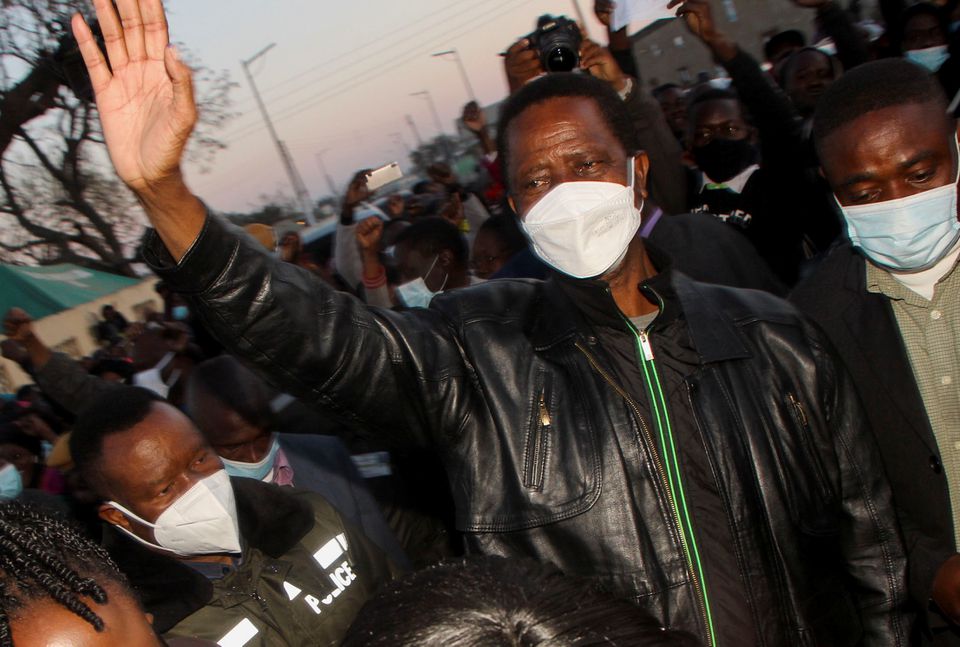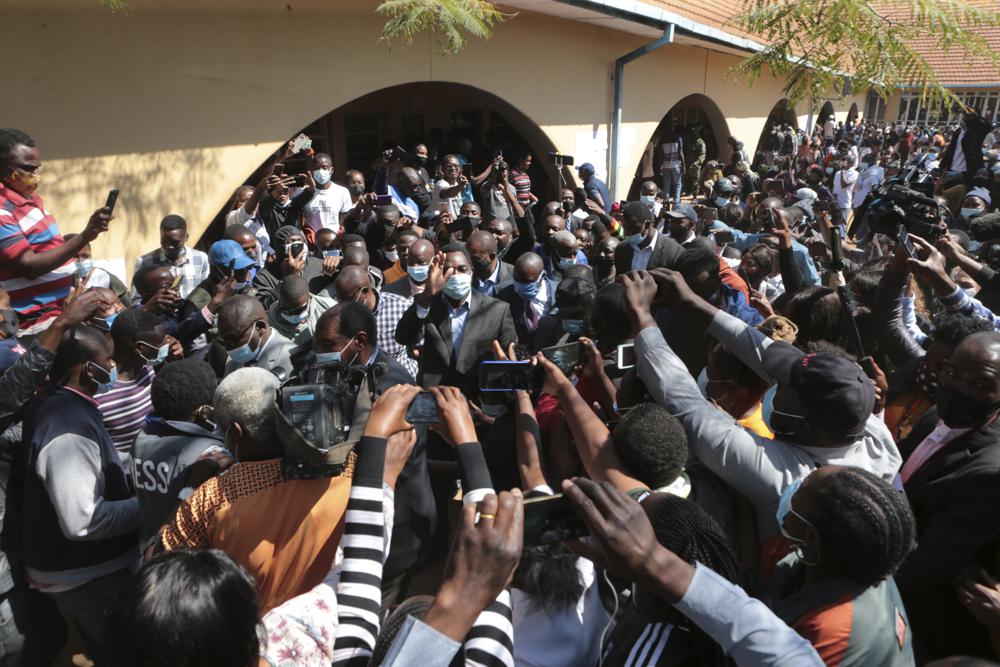LUSAKA, Zambia – The main challenger to Zambian president Edgar Lungu took an early lead in the presidential race as the Electoral Commission of Zambia (ECZ) finally released the first results from Thursday’s vote.
Results from 15 of Zambia’s 156 constituencies showed Hakainde Hichilema of the United Party for National Development (UPND) with 171,604 votes to 110,178 for Lungu, who leads the Patriotic Front (PF).
The ECZ – which has 72 hours from the close of polling to announce results under Zambian law – released the first set of results at around 1AM on Saturday after a day of haggling over verification. The UPND had caused an earlier planned announcement to be aborted after it charged that some results were wrongly captured to the benefit of Lungu.
The next set of results are expected at 11AM local time on Saturday, the ECZ said.
Several leaders of smaller opposition parties read out concession speeches on Friday, including Nevers Mumba, presidential candidate for Zambia’s former ruling party the Movement for Multi-Party Democracy (MMD) who said their projections were that Hichilema and his UPND “are headed for a very, very big win.”
Vote counting continued in Zambia’s 10 constituencies after a hard-fought general election that saw social media throttled in the capital and President Lungu send more troops to three provinces to quell violence.
The ballot is expected to be the tightest stand-off yet between Lungu, 64, and Hichilema, 59, who is vying the top job for the sixth time and is backed by an alliance of 10 parties.
In a statement late Friday, UPND Alliance chairman Charles Milupi said independent tallies showed Hichilema had won over with 50 percent of the vote.
“Thanks to the determination of the people and their willingness to queue for long hours to cast their vote we are now confident that our presidential candidate Hakainde Hichilema is poised for a first round victory and will shortly be headed to State House,” he said, citing unofficial vote tabulation giving Hichilema a 59 percent to 38.3 percent advantage over Lungu.
Thursday’s vote presented a test of democracy in the usually peaceful southern African nation of more than 17 million people, where rising living costs appear to have diminished support for Lungu, who is accused of growing increasingly iron-fisted since taking office in 2015.

Violence was reported in the North-Western province, a Hichilema stronghold, where two people including a ruling PF party chairman were killed, the president announced late Thursday, blaming his rival’s UPND party.
Zambia’s electoral commission has launched an investigation into the chairman’s murder, which the UPND distanced itself from, calling it a “distraction” tactic.
The PF also alleges some of its agents were beaten and chased from polling stations in the Southern province.
Lungu inferred that election day violence has “effectively rendered the elections in… three provinces not free and fair”.
There are fears the president could be “exaggerating the extent of violence and instability in opposition regions to justify” invalidating their results, Nic Cheeseman, British political scientist and author of “How to Rig an Election”, tweeted on Thursday.
Social media access has meanwhile been throttled since Hichilema cast his vote in the capital Lusaka, raising eyebrows among the electorate.
Final official results of the presidential, parliamentary and local government elections are expected by Sunday.
Poll watchers have warned of possible unrest when the results are out.
The outcome is expected to swing on results in Lusaka, a bustling city of more than 3.3 million, and in the central Copperbelt province – key to the economy in Africa’s second-largest copper producer.
Hichilema, who is running against Lungu for the third time, only lost by around 100,000 votes in 2016 and an even narrower margin in a by-election the previous year.
Local and international observers are yet to comment on rigging concerns shrouding the poll, with most observer missions set to deliver their preliminary reports on Saturday.
“The real test will be in the counting process” and whether Lungu will accept an possible eventual defeat, said independent Zambian political economist Trevor Simumba.
















